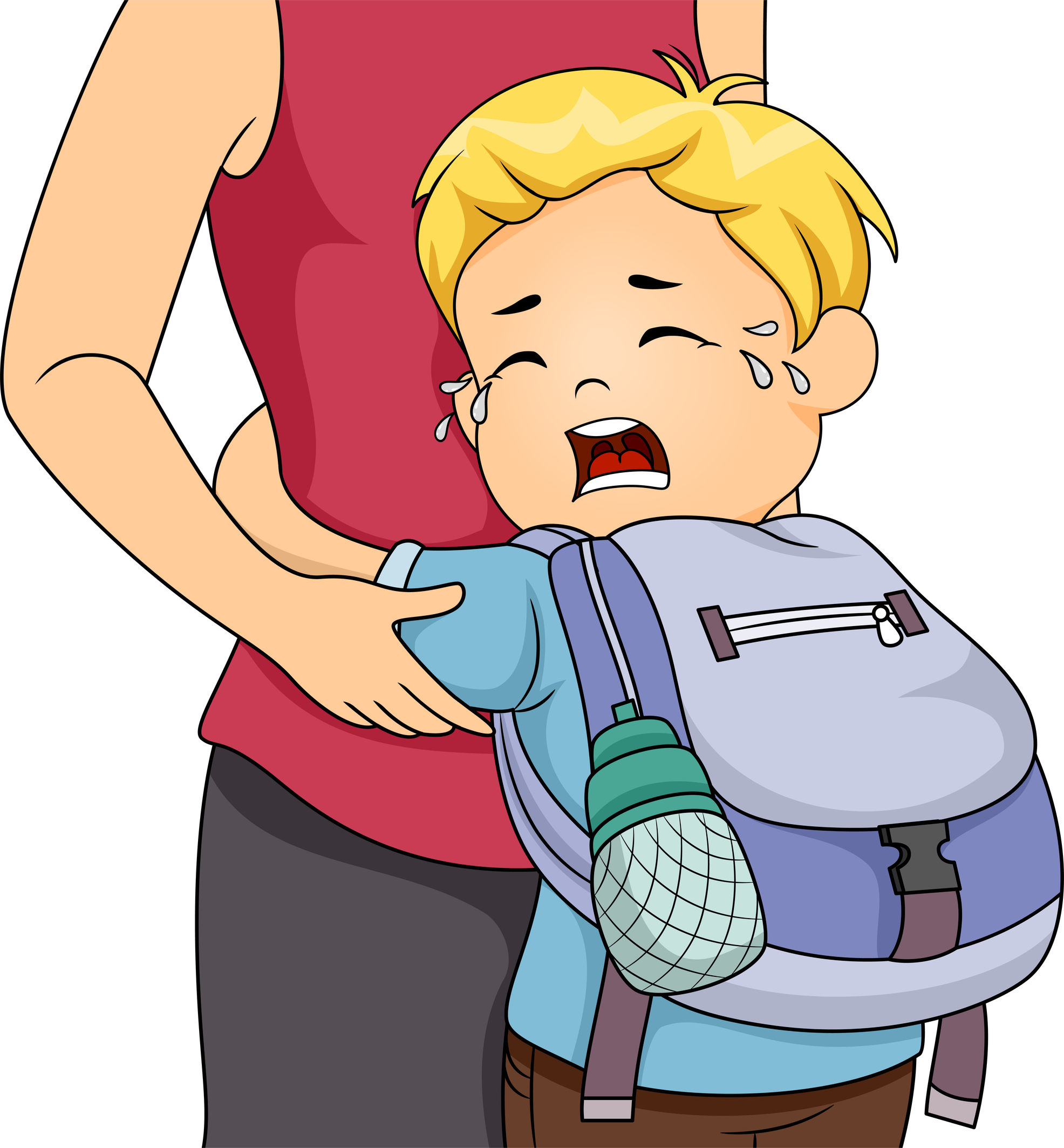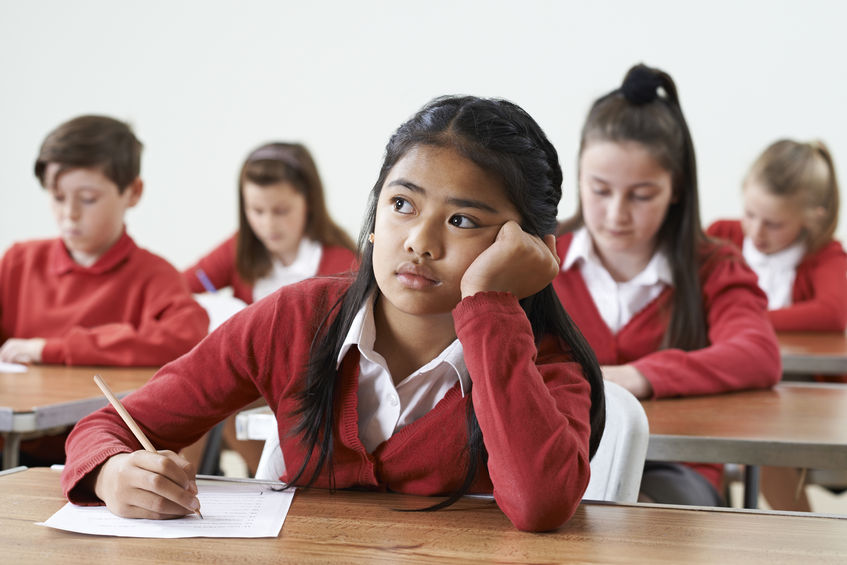School Anxiety in Children on the rise
It’s not surprising that school anxiety statistics are going through the ceiling as without a doubt there is a lot more pressure on children than ever before. For children navigating the unwarranted world of social media, balancing homework and extracurricular activities, the impacts of anxiety can have a devastating impact on their ability to learn and function.
Imagine being that child who dreads going to school. He sits in the back of the classroom or find ways to “hide” or rather “blend”, because he is fearful of his name being called by the teacher to answer a question. He may also avoid lunch because his classmates may see him as being aloof because he keeps to himself and does not talk to others. The child may not have understood what is being said in class and may have a question, but he is too afraid to ask for help because he fears that other children or the teacher might make fun of him.
School anxiety in children has therefore become very common. It can manifest in different ways. Some children may become quiet, others may act out, some may feel physically ill or exhausted, others may refuse to go to school altogether. Regardless of how anxiety presents in the classroom, the negative impact on students learning and wellbeing is indisputable.
School Anxiety can be caused and be a result of

- Separation anxiety which is only seen in children and occurs in about 4.5% of children age 7-11. This type of anxiety disorder is a condition in which a child becomes fearful and nervous when away from home or separated from a loved one, usually a parent.
- Test anxiety in children is related to a fear of failure. Childhood test anxiety can continue into adulthood and take other forms of performance anxiety. Test anxiety in school children can include- lack of preparation and poor test history.
- Social anxiety in children, also known as social phobia, can be seen at school and in other parts of a child’s life. Although Social anxiety typically affects older children and adolescents, it can also be diagnosed in children as young as four years old. Socially anxious children experience feeling queasiness, stomach aches, blushing and trembling. Also, children with social anxiety typically are shy or withdrawn; have difficulty meeting other children or joining in groups; such children have a limited number of friends. They avoid social situations where they might be the focus of attention or stand out from others – for example, talking on the telephone and asking or answering questions in class.
It is not however easy not to identify social anxiety. This is because children who have social anxiety are often quiet and obedient in school. They might not talk about their fears or worries.
Signs of School Anxiety in Children
There can be various signs of School Anxiety. The most obvious sign is the refusal to attend school. This could be because of any of the anxieties mentioned above. Separation anxiety, social anxiety or test anxiety.
Other signs of anxiety in school children include:
- Selective Mutism – most occurs with social anxiety
- Nightmares
- Tantrums
Older children, those aged 12-16, often experience physical anxiety symptoms such as
- Headaches
- Wooziness
- Dizziness
- Sweatiness
- Gastric symptoms such as stomach-ache, nausea, cramps, vomiting
- Muscle or body aches
While in school children suffering from School Anxiety will show some of these signs.
- A child might be wriggling in his seat and not paying attention. When a child is anxious in the classroom, he/she might find it difficult to focus on the lesson and ignoring the worried thoughts overtaking their brains.

- Anxiety can make kids aggressive. When children are feeling, upset or threatened and don’t know how to handle their feelings, their fight or flight response to protect themselves can kick in — and some kids are more likely to fight. They might attack another child or a teacher, throw things, or push over a desk because they’re feeling out of control.
- Acting out is something we might not associate with anxiety. But when a child is instinctively being disruptive or is throwing a tantrum whenever the timetable is ignored or when a fellow student is not following the rules, anxiety may well be the cause. Similarly, children who feel anxious might ask a lot of questions, including repetitive ones, because they are feeling worried and want reassurance.
- Trouble answering questions in class could also be a sign of anxiety.
Helping your child with School anxiety
If your child is suffering from School anxiety, he will look to you for help and support. There are lots of things you can do.
It is important that you make your child’s school and teacher aware of your child’s anxieties.
Encourage your child to talk about their fears and worries. Share things that made you anxious as a child will help them to share what they are anxious about. By modelling your own calm acceptance of anxiety, you will be assisting them to remain calm about theirs.
If you show them how you have learnt to manage your own anxiety, thus role modelling to your child that it can be achieved, it will help reduce their anxieties
Teach your child about anxiety and its purpose. Explain that we all experience anxiety; it is a natural part of human nature and a vital part of our lives. Anxiety helps us to identify and respond to danger in ‘fight or flight’ mode. It can motivate to us face up to dealing with difficult challenges. The ‘right’ amount of anxiety can help us perform better and stimulate action and creativity. By explaining these you are helping your child to recognize their anxiety and help them develop ways to manage it Other things you can do to help.
Encourage good eating (reduce caffeinated, high sugar drinks and foods), encourage regular exercise, get them to develop hobbies, get sufficient sleep and connect with friends. When children are well-rested and relaxed, they will be in a better mental state to handle fears or worries.
Namita Bhatia
NLP4Kids Practitioner at Kids Mindset Therapy Ltd
www.childtherapypinner’nlp4kids.org

Leave a Reply